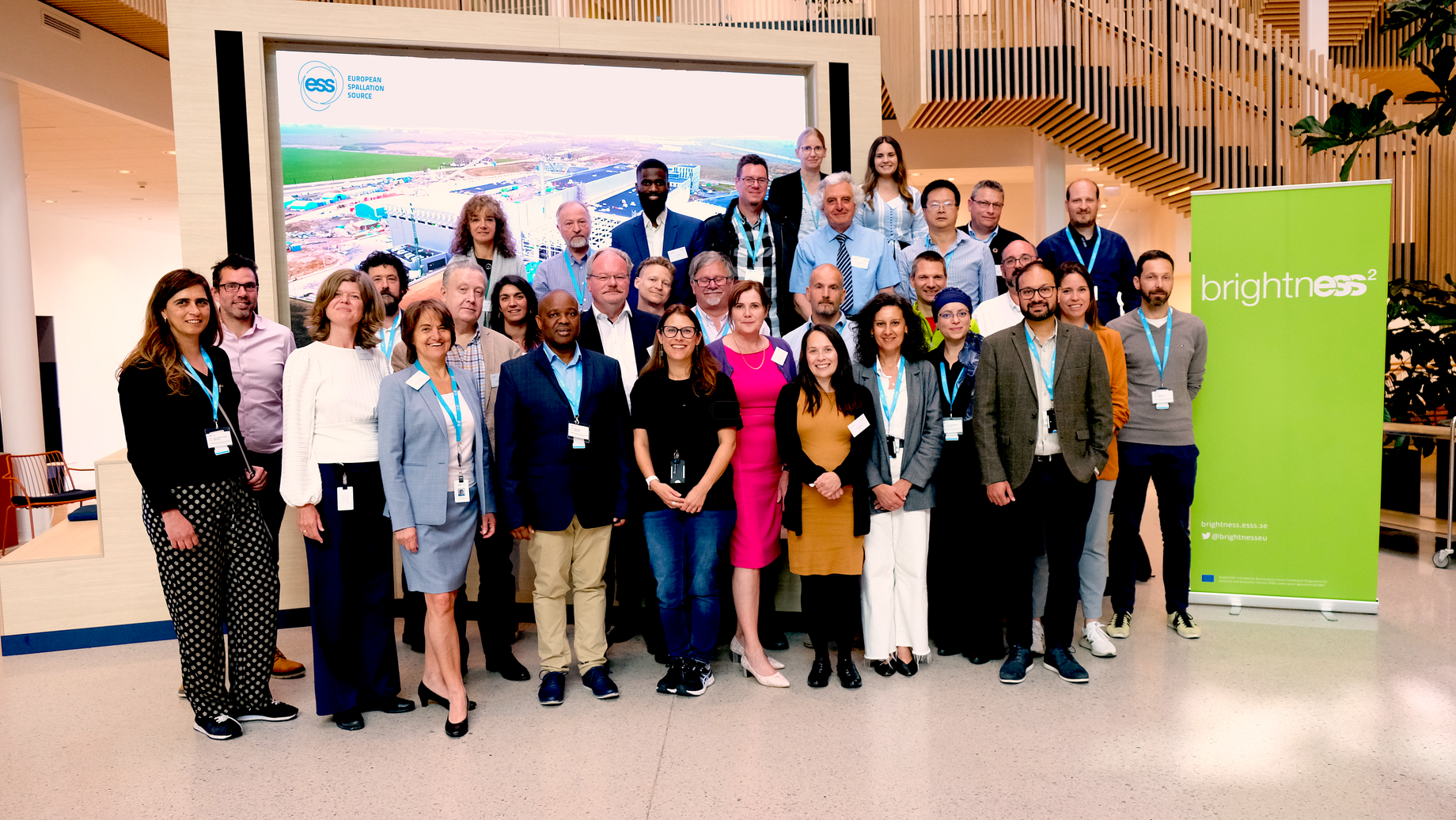BrightnESS² marks the end of the 6 1/2-year BrightnESS journey

The consortium of BrightnESS² project partners met to mark the completion of the three-and-a-half-year project and to celebrate its many achievements in strengthening Europe’s neutron science community to ensure the long-term sustainability of ESS.
BrightnESS² is a European Union-funded project within the European Commission’s Horizon 2020 Research and Innovation programme. Led by ESS, the M€5 project kicked-off in January 2019. BrightnESS² was structured to implement several of the key outcomes of the first BrightnESS project (2015-2018), and this meeting brought to a close the M€25, six-and-a-half year collaboration to ensure the scientific and organisational success of ESS.

Remote attendees of the BrightnESS² final General Assembly meeting.
The project has provided the support necessary to consolidate several groundbreaking initiatives. Some of the highlights include:
- The development of a new landscape analysis and common roadmap for the next 30 years of neutron science in Europe; an endeavour that brought together the leaders of Europe’s major neutron centres, through LENS, and the European user community, through ENSA.
- Providing support to bring LENS, the League of advanced European Neutron Sources, into its fifth year as an increasingly mature organisation that has both the backing and active participation of the high-level management of all of Europe’s major neutron facilities.
- Development and publication of the first socio-economic impact report for ESS, establishing a baseline for the project’s impact (during the Construction Phase 2013-2018) across its member states and in-kind contributors.
- European integration of the Canadian and South African science communities in an ongoing effort to expand the ESS member base.
- The maturing and development of the networks for in-kind coordination and industrial user access across Europe.
- The implementation of an ESS innovation strategy alongside a roadmap for technical upgrades at ESS.
- The establishment of RI.Logistica, a new forum for logistics professionals at Europe’s research infrastructures, initiated as a response to the persistent global supply chain disruption.
- The establishment and trademarking of the Neutron Quality Label (NQL) to standardise engineering strain scanning measurements to enable a more efficient use of neutrons for industrial R&D.
- A pilot programme to develop new scientific methods to increase the availability of deuterated samples critical to life science research at all of Europe’s neutron sources.
- The project also partnered with the European Neutron Scattering Association (ENSA) to produce an AI-assisted granular analysis of the composition and needs of the sprawling European neutron user community.
Apart from detailing these accomplishments, among others, the meeting served as the springboard for exploring the activities that will keep each of these initiatives going in the future.

